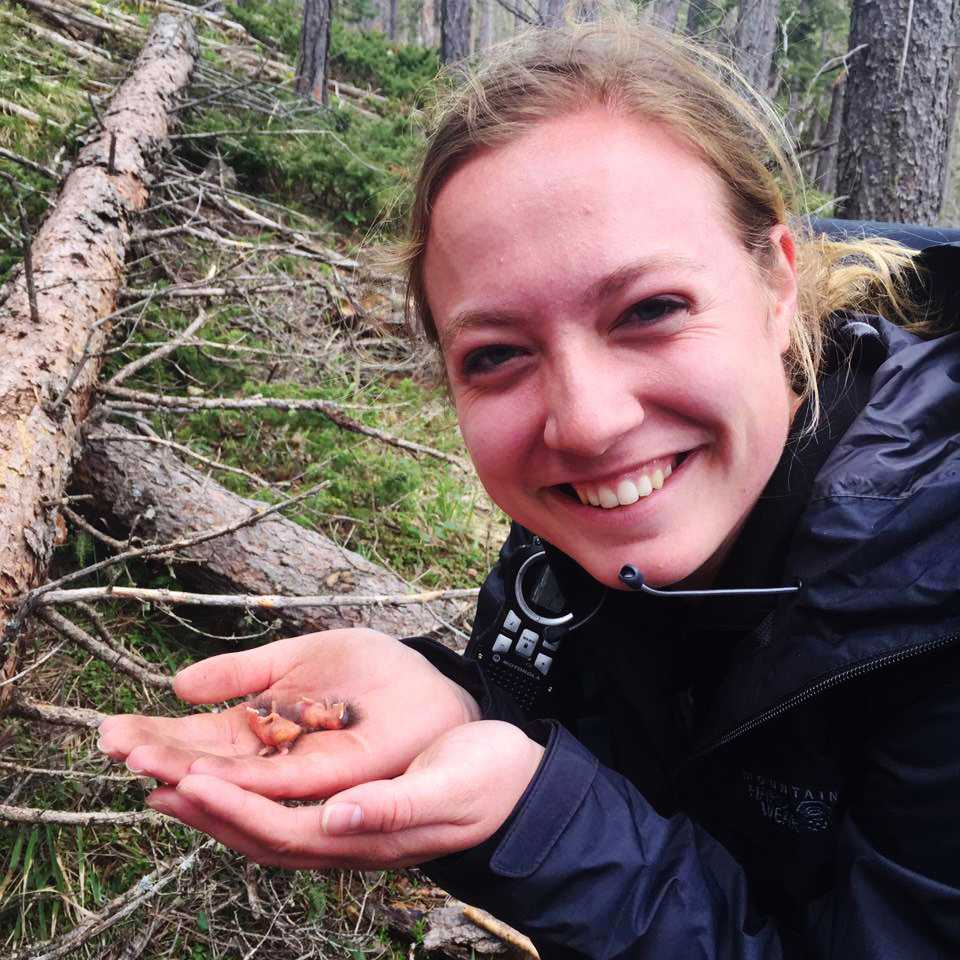An NMU student and Ishpeming native spent 10 weeks during the summer in Black Hills, South Dakota researching the breeding ecology of the dark-eyed junco. Senior zoology major Emily Bertucci participated in a research experience for undergraduates (REU) through North Dakota State University.
 Bertucci said she spent eight weeks conducting research in the Black Hills and two weeks at the university.
Bertucci said she spent eight weeks conducting research in the Black Hills and two weeks at the university.
The project was based on Bertucci’s hypothesis that male juncos may alter their level of parental care depending on their degree of certainty in their paternity of the offspring. Bertucci was studying how juncos form and are not staying true to their social pairs because of extra pair population, leaving males to raise young that are their own and some other male’s.
While in the field, Bertucci along with two graduate students and a field tech who also worked on projects, looked for dark-eyed juncos’ nests.
“It was such an incredible experience,” Bertucci said.
The group was out in the field every morning looking for nests in the Black Hills mountain range. Once the nests were found, the group would monitor for junco eggs and wait for them to hatch. They caught and banded the nestlings with colored markers so that they could identify the birds later on, Bertucci said.
Bertucci installed a device that monitored parental care and also set up iButtons on the nest, which she described as looking like smart watches that monitor body temperature. The monitor was hooked up to a computer and the researchers watched for fluctuation in temperature to know when the mother was on or off the nest.
In addition to monitoring the nest, the researchers banded adult birds after catching them in nets or different ground traps. The group also took blood samples from the adult and nesting birds after placing iButton temperature sensors in the nest to record the wake-up time of female birds and video cameras on the nest to monitor prenatal care, Bertucci said.
“My favorite part of the field work was when we would be following the female birds to their nest,” Bertucci said. “A lot of times it took a lot of work and would take a long time but when you finally found it and found her nest, it was the best feeling. It was just awesome.”
Bertucci said she found out about this opportunity through the National Science Foundation, which funds a lot of programs like the one she found. Some of the programs are big and others are grants by professors who write REU students into them, Bertucci said. She had previously known about these kind of programs and had been keeping her ear out for them but found this one on the job board and knew this was the project for her.
“It was an incredible experience just because I was working with a lot of great scientist and got to learn firsthand how science researches are conducted at a high level,” Bertucci said.
“It was a segue into knowing this is what I want to do for the rest of my life and knowing that grad school is the right path for me.”
Bertucci spent the last two weeks of her REU in Fargo, North Dakota doing data analysis, extracting DNA for paternity analysis and writing her final
paper.
























